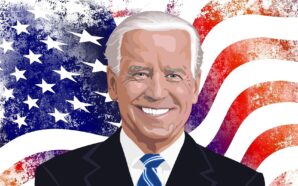
Credit: Unsplash
Rishi Sunak Explores Policies to Safeguard the Next Generation from Tobacco Harm
British Prime Minister Rishi Sunak is contemplating groundbreaking anti-smoking measures aimed at safeguarding the health of the next generation. Reports indicate that Sunak is exploring strategies akin to those adopted by New Zealand last year, which include incrementally raising the legal smoking age, ultimately prohibiting tobacco sales to individuals born on or after January 1, 2009.
The proposals align with the government’s overarching ambition to achieve a smoke-free status in the United Kingdom by 2030. To realize this goal, various initiatives have already been initiated, such as the distribution of free vape kits, a voucher program incentivizing pregnant women to quit smoking, and consultations on mandatory cigarette pack inserts.
A government spokesperson stated, “We want to encourage more people to quit and meet our ambition to be smoke-free by 2030, which is why we have already taken steps to reduce smoking rates.” However, the spokesperson refrained from providing additional comments regarding the recent reports.
These potential measures are part of a new consumer-focused agenda from Sunak’s team in the lead-up to the anticipated election next year. It reflects the government’s commitment to address public health concerns, particularly in relation to smoking cessation and youth protection.
https://x.com/MirrorNow/status/1705465769843458144?s=20
New Zealand’s approach to reducing smoking rates involved increasing the legal smoking age and reducing the nicotine content of tobacco products and limiting their sale to specialty tobacco stores, rather than convenience stores and supermarkets.
The consideration of such policies has generated discussions and consultations, with the Labour party expressing interest in phasing out cigarette sales over time for younger generations, similar to New Zealand’s approach.
In addition to anti-smoking measures, Sunak’s administration has been exploring various policy changes, including a potential fine for missed medical appointments and reforms to the A-level education system.
Critics argue that these shifts reflect the government’s pursuit of clear policy distinctions in areas like welfare and law enforcement, potentially setting the stage for political debates in the upcoming election.
Biden Family Once Again Making Headlines
-
Avride Teams Up with Rakuten to Introduce Sidewalk Delivery Bots in Tokyo, Bringing Faster and More Efficient Deliveries to...
-
The World’s Most Expensive Substance Costs More Than the Global Economy Imagine a material so rare and difficult to...
-
May Mobility Launches Fully Driverless Ride-Hail Service in Peachtree Corners May Mobility is taking autonomous transportation to the next...
-
What Caused the Plane Crash? The tragic crash of Azerbaijan Airlines Flight 190 in western Kazakhstan has left 38...
-
In a whirlwind 24 hours that rocked South Korea, President Yoon Suk Yeol’s surprise martial law declaration and its...
-
Goodbye to Bob Bryar, A Key Figure in My Chemical Romance’s Journey In a heartfelt announcement, My Chemical Romance...
-
Joe Biden’s Sudden Pardon for Hunter Raises Eyebrows and Divides Opinion on Justice System Integrity In a surprising and...
-
Royal fans are buzzing over a hidden detail in Queen Mary of Denmark’s latest portrait, which seems to speak...
-
Once again, Iceland’s fiery landscape captures global attention as the Reykjanes Peninsula experiences its tenth volcanic eruption in just...
-
Credit: Unsplash Let’s face it, some of the best food in the world isn’t found in fancy restaurants. Nope,...
-
Credit: Envato Elements Let’s be honest—traveling around Europe is a dream we all share, but there’s a not-so-fun side...
-
Canada’s Labor Minister, Steven MacKinnon, has taken decisive action to end the recent labor disruptions affecting key ports in...




















